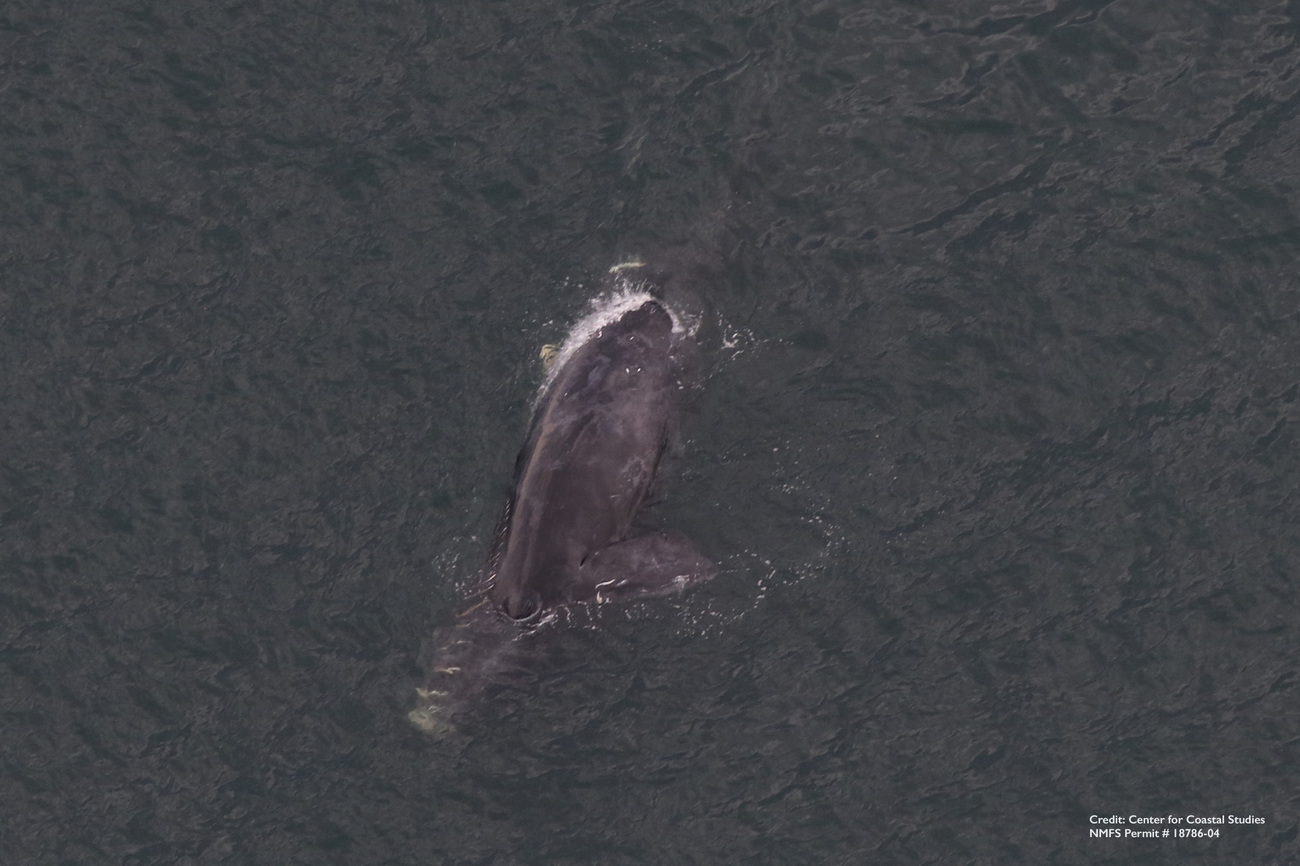Saving the North Atlantic right whale - North America
Don't fail our whaleifaw investigates death of endangered North Atlantic right whale calf
ifaw investigates death of endangered North Atlantic right whale calf

WASHINGTON D.C. (June 30, 2020) – A dead, floating whale was first reported off the coast of New Jersey on June 25, 2020. Upon review of the photos, the whale was identified by the New England Aquarium and the Florida Fish and Wildlife Conservation Commission as the six month old male calf of North Atlantic right whale #3560 (unnamed). He was the first of ten reported calves in the 2019-2020 season. The mother and calf pair were first spotted off the coast of Georgia in mid-December 2019 and last sighted on April 6, 2020 near Cape Lookout, North Carolina.
"The news of this dead calf is just heartbreaking. Losing one of only ten new right whale calves born this year is a major blow to a population that is already on the brink of extinction," says Dr. Sarah Sharp, wildlife veterinarian at International Fund for Animal Welfare (IFAW).
Another calf was seen off the coast of Florida in January with evidence of a devastating vessel strike. While IFAW assisted with efforts to treat the calf with antibiotics at sea, the likelihood of that animal surviving its injuries is very low.
The National Oceanic and Atmospheric Administration (NOAA) worked with several organizations to plan a necropsy (animal autopsy) for the dead calf sighted off New Jersey. At the request of NOAA, a team of biologists and Dr. Sharp from IFAW deployed to participate in the necropsy of the young whale.
The necropsy showed that the male right whale calf had evidence of at least two separate vessel collisions. A series of many propeller wounds across the head and chest and a likely a skeg or rudder injury on the back were documented. These wounds all had evidence of healing indicating that they had likely occurred several weeks prior to the animal’s death, and they were severe enough that they may have significantly impaired the whale.
The second vessel collision also resulted in deep propeller wounds, along with a skeg or rudder injury across the tail stock. Examination of these wounds revealed that they were inflicted shortly before the animal died and were likely the cause of death.
"This is the 41st endangered North Atlantic right whale to die (or be presumed dead) since NOAA declared an Unusual Mortality Event for the species in 2017. That means that with a population of only approximately 400 whales remaining, one in every ten whales of this species has died over a very short period of time. Vessel strikes and entanglements are driving these deaths and we must implement meaningful regulations now or else this species will certainly go extinct on our watch," says Dr. Sharp.
"We want to express our sincere appreciation to the many partners involved in this massive effort for your dedication and service towards the recovery of this critically endangered species. We are committed to continuing to work with our partners both in the United States and Canada to reduce threats to North Atlantic right whales in order to recover the species,” says Kim Damon-Randall, Deputy Regional Administrator for the Greater Atlantic Region at NOAA.
In addition to a Whale Alert app, which was created by IFAW to assist mariners in navigating waters where whales are known to frequent. IFAW works with lawmakers and lobstermen to secure stronger protections for the North Atlantic right whale and encourages the use of ropeless fishing gear.
About the International Fund for Animal Welfare (IFAW):
The International Fund for Animal Welfare (IFAW) is a global non-profit helping animals and people thrive together. We are experts and everyday people, working across seas, oceans, and in more than 40 countries around the world. We rescue, rehabilitate, and release animals, and we restore and protect their natural habitats. The problems we’re up against are urgent and complicated. To solve them, we match fresh thinking with bold action. We partner with local communities, governments, non-governmental organizations, and businesses. Together, we pioneer new and innovative ways to help all species flourish. See how at ifaw.org.
About the National Oceanic and Atmospheric Administration (NOAA):
NOAA Fisheries is responsible for the stewardship of the nation's ocean resources and their habitat. We provide vital services for the nation: productive and sustainable fisheries, safe sources of seafood, the recovery and conservation of protected resources, and healthy ecosystems—all backed by sound science and an ecosystem-based approach to management.
Related content
Our work can’t get done without you. Please give what you can to help animals thrive.